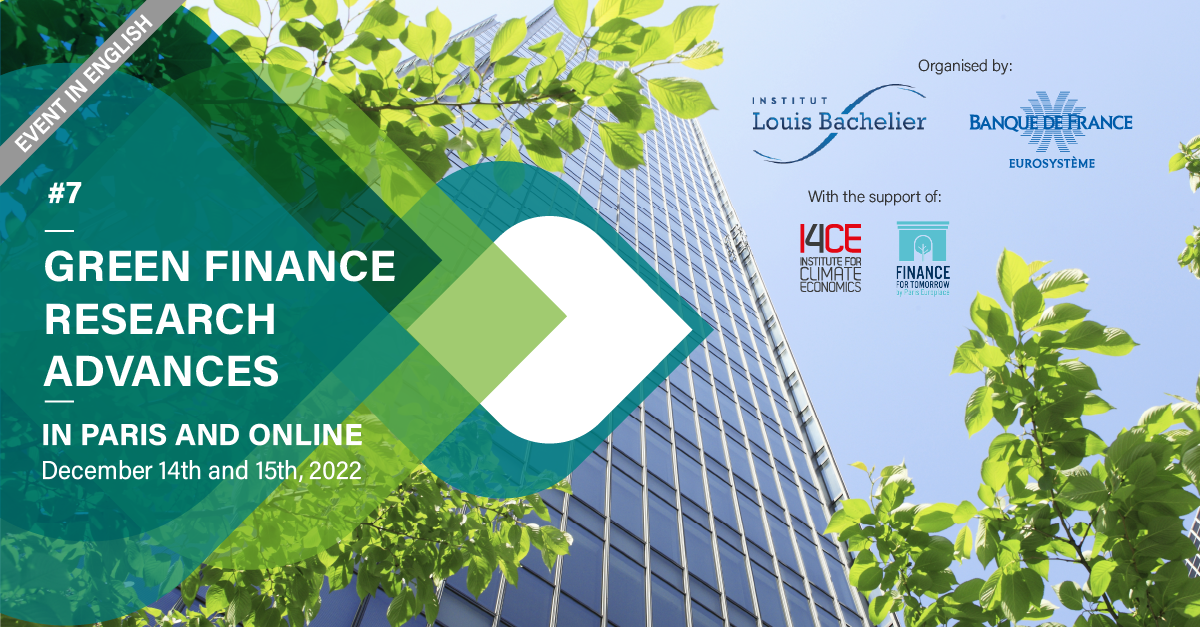Save the date: The 7th Green Finance research advances conference
Conferences Webinars - By : Anuschka HILKEThis event was only in English without translation.

The Green Finance Research Advances is an International Research Conference for academics and professionals, co-organized by Banque de France and the Institut Louis Bachelier, with the participation of Finance for Tomorrow and the Institute for Climate Economics I4CE.
The 7th edition took place on December 14-15, 2022 in Paris and online.
The objective of the conference was to bring together academics, finance practitioners and regulators, to discuss together research issues related to the integration of climate risks (more generally environmental issues) into macro-economic modelling/forecasting and into the risk assessment of the financial sector.
While climate risks have much longer time horizons than traditional financial risks and cannot be dealt with without a clear understanding of long-term phenomena governing the joint evolution of climate and the economy, the short and medium-term aspects of energy transition are crucial for an orderly transition and are perhaps less well studied in the economic literature. The 7th Green Finance Research Advances therefore aimed to highlight the short and medium-term climate risks and obstacles to energy transition and the role of central banks in addressing them.
To see the program of the two days click here.